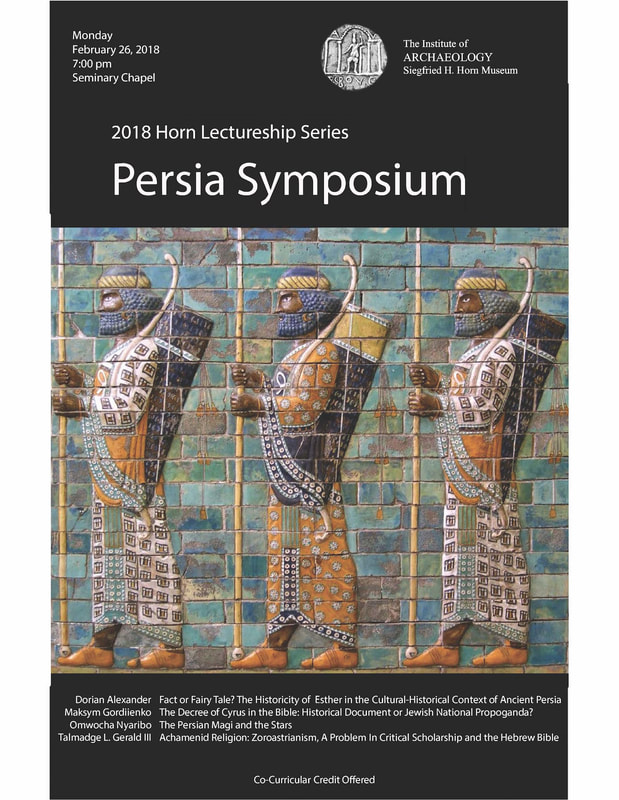Achaemenid Religion: Zoroastrianism, A Problem in Critical Scholarship and the Hebrew Bible9/10/2018 As part of the Persia Symposium back in February of 2018, three students and myself researched topics of interest and presented our research to the university and community. My paper was on Achaemenid Religion and Zoroastrianism.
I remember in my younger undergraduate days, someone out of the blue asked me if I knew that Zoroastrianism was the world oldest Monotheism and in turn, heavily influenced the writers of the Bible. Coincidently, there are quite a few scholars who follow this line of thinking. As I have often questioned, I asked, "where does this tradition/assumption come from?" I discovered that much of what is assumed about this religion is based off of what we know in modern dayZoroastrianism. In my lecture, I explore Archaeological evidence to determine if there is enough data to exhibit that Zoroastrianism was the state religion of the ancient Achaemenid Persian Empire (550-330 BC). I also explore what critical scholarship considers as "influence" upon another religion. I approach the subject logically and come to several conclusions. One of these conclusions is that we know very little about ancient Zoroastrianism, if it was at all practiced in Ancient Persia. What appears to be happening is a problem of propinquity (something being associated within time and space). Critical Scholars whom believe this, impose modern day Zoroastrian theology and themes upon ancient Judaism. Please watch my lecture and let me know what you think in the comments. Before watching, if you are not familiar with the arguments, let it be known that Critical Scholarship typically places the composition of the Bible during or after the Persian period (550-330 BC). The assumptions of Zoroastrian ideas imposed on the Bible are made by those that believe in a late composition of the text. Also, let me know if you would like me to upload the full paper or send a pdf to you personally. Hope you enjoy! Click the button below to watch the lecture. -Talmadge
0 Comments
The following links are to four lectures from students and myself at Andrews University. Every year, the Institute of Archaeology and Siegfried H. Horn Museum have a Scholar's symposium for the students and local community to attend. Last February, 2018, the Horn Lectureship Series had the "Persia Symposium." We all did research and wrote scholarly papers on a subject of our choice centered around a larger theme of the Persian Empire and its connections to subjects in Archaeology and the Bible (Ezra, Nehemiah, Esther, and Daniel). These lectures are: Dorian Alexander: "Fact or Fair Tale? The Historicity of Esther in the Cultural-Historical Context of Ancient Persia" Maksym Gordiienko: "The Decree of Cyrus in the Bible: Historical Document or Jewish National Propaganda?" Omwocha Nyaribo: "The Persian Magi and the Stars" Click on the buttons below to view the lectures. I will post my own lecture on Zoroastrianism and the Hebrew Bible in a post following this one since I can include a basic summary of the lecture. Andrews University owns the rights to these videos and I did not film the lectures myself. Please click the links and enjoy! Let me know what you think of them in comments. -TG |
Archives
June 2021
Categories
All
|

 RSS Feed
RSS Feed